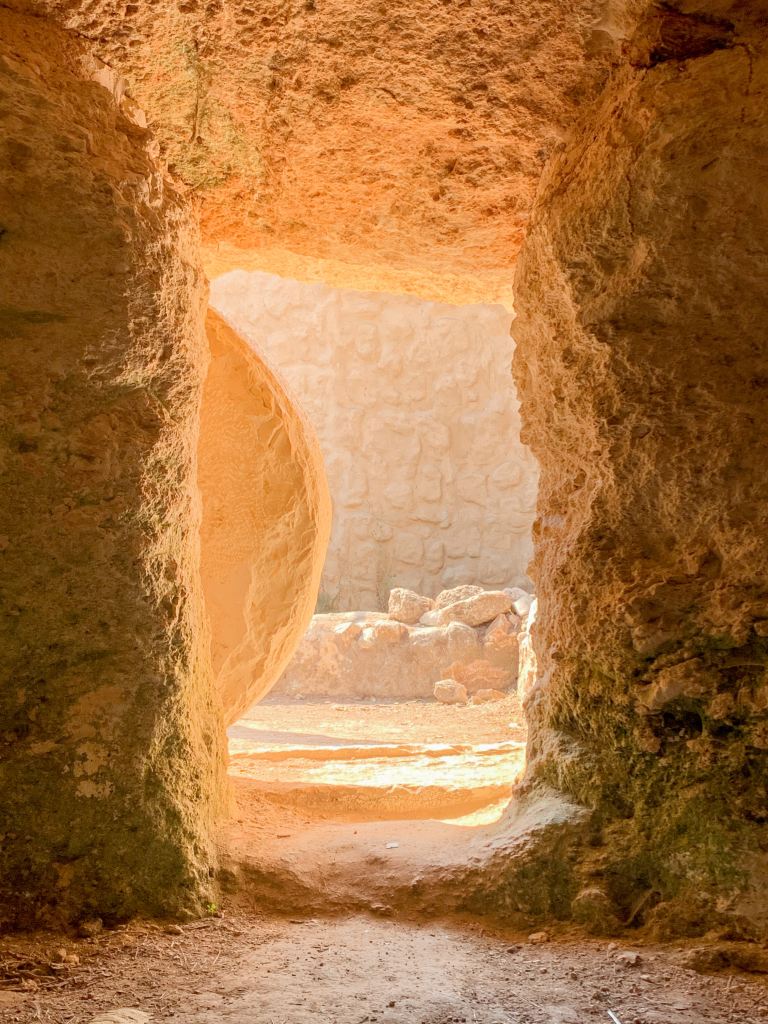
This week’s readings:
- Acts 1:1–11
- Psalm 47:2–3, 6–7, 8–9
- Ephesians 4:1–13
- Mark 16:15–20
What this week’s readings say to me:
This week’s readings are the readings that commemorate the Ascension of the Lord. The themes of this week’s passages call to mind themes we’ll revisit near the end of the year, on the last Sunday before Advent, the feast of Christ the King. On this day and on that one, we honor Christ’s kingship.
Today, the first reading gives us a summary of what happened during Christ’s reign on earth. It reflects on the past. In the same passage, the apostles ask the risen Lord what His resurrection means in terms of the prophecies about the Messiah that have been handed down to them. They wonder what the prophecies and the resurrection mean for their futures. He tells them this is no time to sit back and wonder what God is going to do. He tells them instead to focus on what He has asked them to do, which is to do as He has done and to share what He has taught them.
This week’s psalm is one that praises God’s kingship.
In the epistle, the third passage listed above, Paul tells the church in Ephesus how to live as Christ lived and how to teach what He taught. He says the key to communion with others and Christ is practicing “humility and gentleness” so that we might “preserve the unity of the spirit through the bond of peace” (Eph. 4:2-3). Embracing these qualities allows God, who is Love, to reign “over all and through all and in all” (Eph. 4:6).
To me, the passage seems to go on to say that Christ didn’t ascend to reign “over all” without descending into death and into a tomb first so He could loosen the grip of death on creation (Eph. 4:6-10). By ascending He cannot only reign but rain gifts on all of creation. These gifts prepare each of us to grow in union with God, to help others grow in that union and to care for what we have in different ways (Eph. 4:10-12).
The Gospel passage reminds us that if we don’t grow in union with God, we die. Furthermore, if we don’t care for the people and resources we’ve been given, we lose them. We run out of resources. The Gospel passage also reminds us to share what we’ve been given and that the gifts we have possessed great power.
What someone else is sharing about this week’s readings:
This week, Martha Ligas proposes that the natural world can teach us how to live out the mission that Jesus gave the apostles.
Beyond this week’s readings:
These signs will accompany those who believe: in my name they will drive out demons, they will speak new languages. They will pick up serpents with their hands, and if they drink any deadly thing, it will not harm them. They will lay hands on the sick, and they will recover.
(Mark 15:17-18)
The above excerpt reminds me that for we flawed human beings, every gift brings with it temptations. Humans sometimes use this verse and the fact that they can receive, live in, and share God’s spirit as justification to put God to the test. We read that when the spirit drives Jesus into the desert, Satan tempts him to put God to the test by commanding a stone to turn into bread and by throwing Himself off the parapet of the temple and expecting God to rescue Him (Luke 4:3 and 9-11). Jesus responds by telling us and Satan that neither we nor He should put God to the test (Luke 3:12). Possessing God’s spirit doesn’t mean we should act without employing reason and exercising prudence. The rules in place in the natural world are just as much reflections of who God is as are events humans are more inclined to call miracles. Let’s celebrate the beauty of nature and laws of the universe and respect that God works within and beyond these gifts. God’s vision is deeper, wider, and clearer than ours is. To respect and to celebrate this reality is to live with gratitude and humility.
This week’s prayer:
The following prayer has a lot of work to do to come to fruition in me: Lord, may we not invite trouble and danger, fear what trouble may come, or be afraid when You allow difficult times to invite us to turn to you and be transformed into the people we can become in You. Amen.
Work cited (but not linked to)
The New American Bible Revised Edition, Kindle edition, Fairbrother, 2011.









